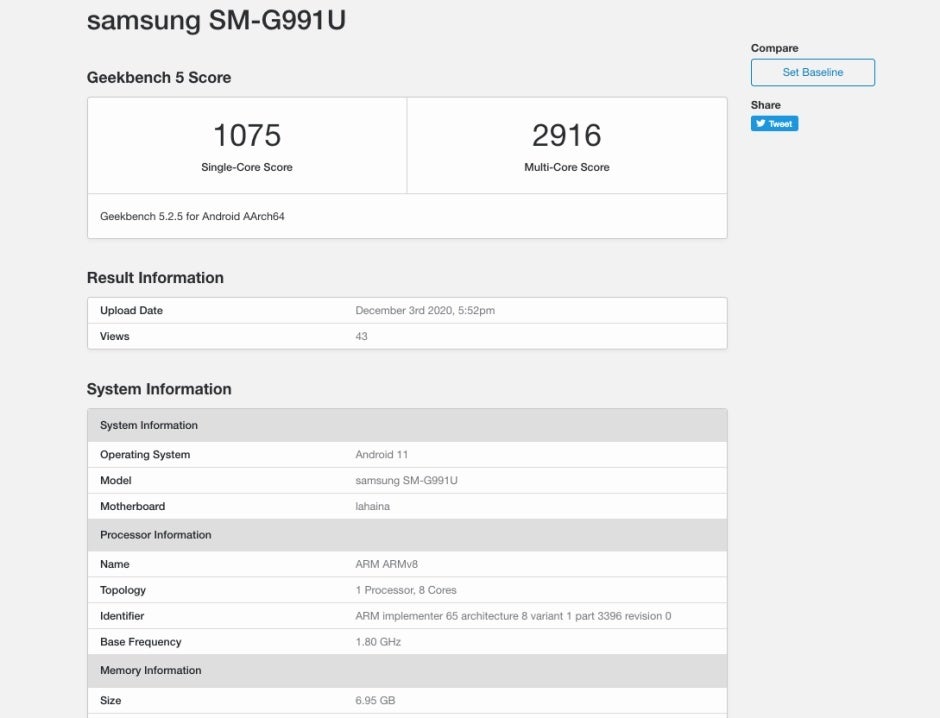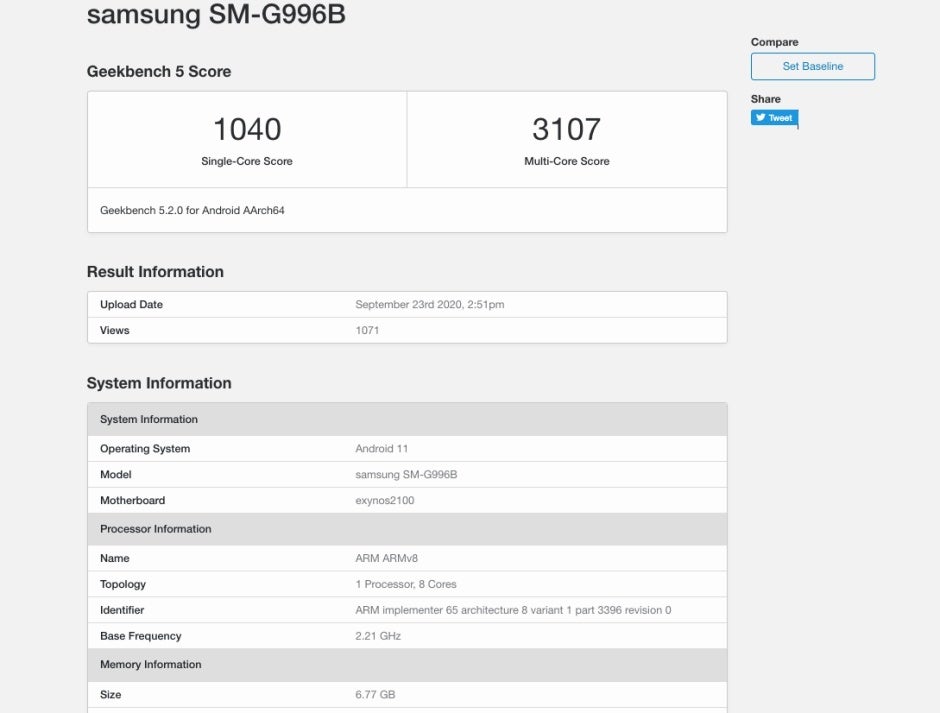Samsung Galaxy S21 5G with Snapdragon 888 posts underwhelming benchmark scores
We may earn a commission if you make a purchase from the links on this page.

UPDATE: Reservations for the Galaxy S21 preorder are now open in the US. Get $50 in store credit for registering!
Mere days after Qualcomm unveiled the curiously named Snapdragon 888 sequel to the state-of-the-art Snapdragon 865 processor found under the hood of the vast majority of high-end Android smartphones released in 2020, one of the first-ever Galaxy S21 benchmarks appears to have cropped up online.
We're obviously talking about an early prototype here undoubtedly running unpolished software, but for what it's worth, the Samsung SM-G991U added to the Geekbench Browser database on December 3 does already come with the latest version of Android. In fact, the same was also true for an SM-G996B device benchmarked all the way back in September with Android 11 and an Exynos 2100 SoC in tow.
In case you're wondering, that model number was widely believed to correspond to an "international" Galaxy S21+, while the SM-G991U clearly follows in the footsteps of the SM-G981U, aka the unlocked US Galaxy S20 5G.
Meet the US Samsung Galaxy S21 5G
Yes, ladies and gents, that is almost certainly what we're looking at here. Specifically, an entry-level configuration of the "regular-sized" S21 with 8 gigs of RAM (less than 7 of which will apparently be user-accessible), and presumably, 128 gigs of internal storage space.

New Galaxy S21 5G benchmark
More importantly, we're definitely looking at a Snapdragon 888-powered handset (motherboard "lahaina") capable of producing... some fairly modest single and multi-core performance scores, at least for the time being.
We're talking a slightly higher single-core result than what the Snapdragon 865-powered Galaxy S20 5G normally delivers, as well as largely unchanged multi-core speed. Granted, we're still a couple of months or so away from the commercial debut of the Galaxy S21 family, and a lot of optimization work could happen between now and then, but it's certainly a little worrisome that these results are also extremely similar to the aforementioned S21+ benchmark from several months back.

Older Galaxy S21+ benchmark
It also almost goes without saying that the Galaxy S21 5G cannot rival the raw speed of the Apple A14 Bionic-based iPhone 12 series, which consistently get over 1,500 and 4,000 single and multi-core point totals respectively. Once again, you shouldn't draw conclusions yet about the final real-world performance of the S21 lineup, but at the same time, you may want to tone down your excitement at seeing the Snapdragon 888 chipset unveiled with an integrated 5G modem.
While that's likely to contribute to a significant improvement in battery life for the S21 5G series compared to its forerunners, there's a chance the raw speed will not get a similar boost.
An overall minor upgrade with a reasonable price point
Although far from being etched in stone, this decidedly unremarkable benchmark is just the latest in a fairly long line of underwhelming rumors, reports, and leaks.
Putting everything together, we can expect the smallest Galaxy S21 model to arrive with a 6.2-inch or so flat screen supporting 120Hz refresh rate technology, as well as a divisive plastic build, triple rear-facing camera system most likely consisting of a primary 12MP shooter, 64MP telephoto lens, and 12MP ultra-wide-angle sensor, and last but not least, a 4,000mAh or so battery.

While it's definitely safe to assume Samsung will be able to improve the imaging performance without actually boosting the megapixel counts of the three aforementioned cameras, it's hard to understand why anyone would bother to buy the S21 5G... until you also take the rumored $850 starting price into consideration.
That's 150 bucks lower than the MSRP of this year's Galaxy S20 5G, and it could absolutely convince a fair number of cash-strapped Android power users to pull the trigger, especially if the Snapdragon 888 processor turns out to be substantially faster than what yesterday's benchmark suggests.













Things that are NOT allowed: